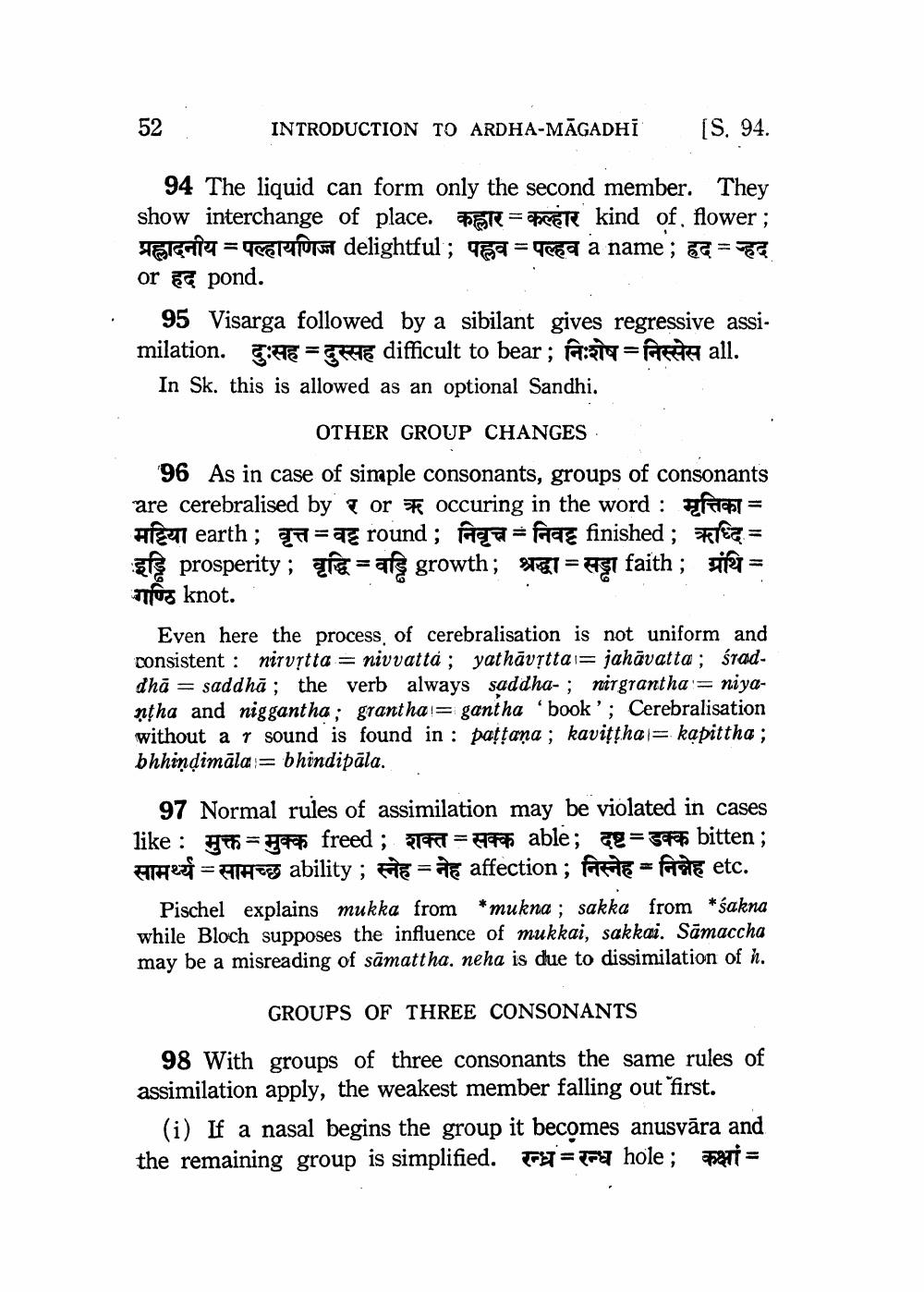________________
52
INTRODUCTION TO ARDHA-MĀGADHI
(S. 94.
94 The liquid can form only the second member. They show interchange of place. Per = PER kind of flower ; "Egrih = TERTIPUT delightful; 6 = cea a name; 6 = or & pond.
95 Visarga followed by a sibilant gives regressive assimilation. The =TRE difficult to bear ; auto=farete all. In Sk. this is allowed as an optional Sandhi.
OTHER GROUP CHANGES 96 As in case of simple consonants, groups of consonants are cerebralised by < or # occuring in the word : f = HERM earth; a = a round; aqua = faqe finished; RETEZ = इड्डि prosperity; वृद्धि = वडि growth; श्रद्धा = सट्टा faith ; ग्रंथि = To knot.
Even here the process, of cerebralisation is not uniform and consistent : nirvịtta = nivvattá; yathāvịtta = jahävatta; śraddhā = saddhā; the verb always saddha- ; nirgrantha = niyanţha and niggantha; grantha!= gantha 'book'; Cerebralisation without a r sound is found in : pațțaņa; kavittha = kapittha ; bhhindimāla = bhindipāla.
97 Normal rules of assimilation may be violated in cases like : 9 4 4 freed ; T = 977*able; ce=3, bitten; ETA EZT = ATH ability ; FE = Te affection ; PARE = fare etc.
Pischel explains mukka from *mukna ; sakka from *sakna while Bloch supposes the influence of mukkai, sakkai. Sāmaccha may be a misreading of sāmattha, neha is due to dissimilation of n.
GROUPS OF THREE CONSONANTS 98 With groups of three consonants the same rules of assimilation apply, the weakest member falling out "first.
(i) If a nasal begins the group it becomes anusvāra and the remaining group is simplified. रन्ध्र = रन्ध hole ; कक्षा




